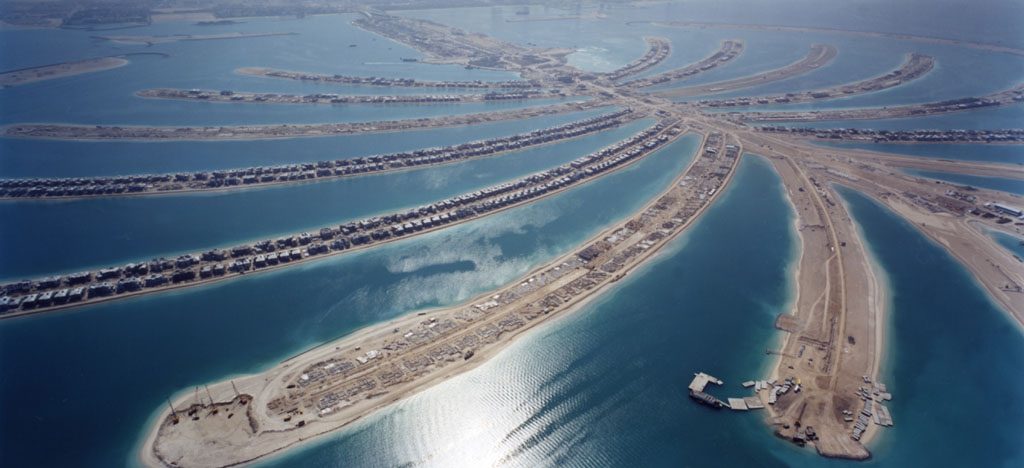Thermo-industrial revolution

Philosopher and historian of science Jacques Grinevald contests the commonly accepted historical narrative of an industrial revolution rooted in eighteenth-century England, a timeline that he has called a “retrospective illusion.” At this time, in England and elsewhere, societies still functioned according to traditional sources of power – human, animal, wind, water. The swing towards a true industrial landscape would come later, Grinevald argues, during the second half of nineteenth century, when societies in the West began using fossil fuels to power their machines. Discovery of coal and oil “shattered” humanity’s “growing energy bottleneck,” wrote Steffen et al. in 2011, leading to the integration of machines into modes of transport and shipping and accelerating human activity as well as creating new activity. (KS)
Image: Armin Linke, The Palm, Jumeirah (aerial view), Dubai, United Arab Emirates, 2005. Courtesy of the artist.
See also: Anthropocene, Capitalocene
Related interview: Jacques Grinevald